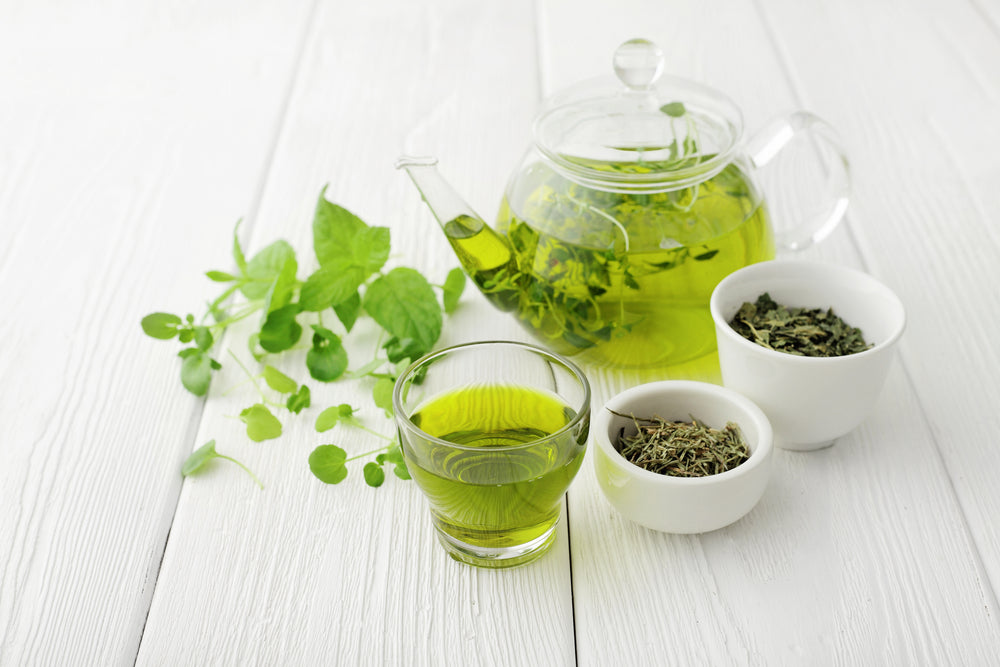Your Cart is Empty
Menu


How Much Caffeine is in Tea?
January 19, 2024 2 min read
How Much Caffeine is in Tea?
Tea and Caffeine
Tea's Twists and Turns: Demystifying the Caffeine Buzz
Tea is the aromatic elixir beloved for its soothing warmth, delicate flavors, and caffeine kick. Yes, that little jolt can be surprising for some tea newbies. However, before you swear off your chamomile just yet, let's delve into the fascinating world of tea's caffeine content.
Tea, Coffee's Cousin Not Twin:
First things first, while tea leaves and coffee beans share the caffeine spotlight, they're not identical twins. Tea leaves boast around 3.5% caffeine, while coffee beans pack a 1.1-2.2% punch. However, brewing methods paint a different picture. Coffee utilizes hotter water and more grounds, extracting a hefty caffeine dose. So, despite tea's slightly higher natural caffeine content, a brewed cup of coffee holds roughly double the buzz.
Dancing with the Caffeine Levels:
However, within the tea kingdom itself, caffeine amounts waltz across a varied spectrum. Let's peek into the teacups:
- Black Tea: The bold and robust leader, with an average of 47mg caffeine per cup (though strong brews can reach 90mg). Think English Breakfast or Assam.
- Green Tea: The delicate darling, averaging 33mg per cup. Matcha, its powdered cousin, packs a punch with 35mg per half-teaspoon.
- White Tea: The young and subtle queen, clocking in at a mere 28mg per cup.
- Oolong Tea: The chameleon-like variety, bridging the gap between black and green teas, with caffeine content ranging from 15mg to 63mg per cup.
Brewing Up the Mystery:
The caffeine story doesn't end there! Brewing time and temperature play their part. Longer steeps and hotter water coax out more caffeine. So, that soothing evening cup of Earl Grey brewed for 5 minutes might surprise you with its gentle zing.
Mindful Sipping:
Now, before you embark on a caffeine-fueled tea frenzy, remember, everyone metabolizes caffeine differently. Consider your own sensitivity and the recommended daily intake (400-500mg for adults).
The Final Sip:
Tea's caffeine content, unlike your favorite cup's flavor, might require a bit of exploration. However, that's just half the fun! So, experiment, brew consciously, and savor the symphony of taste and energy that each cup offers.
P.S. Don't forget, herbal teas like chamomile, peppermint, lemon ginger and rooibos are naturally caffeine-free, offering a relaxing escape without the buzz.
Rooibus Tea: A Comprehensive Guide